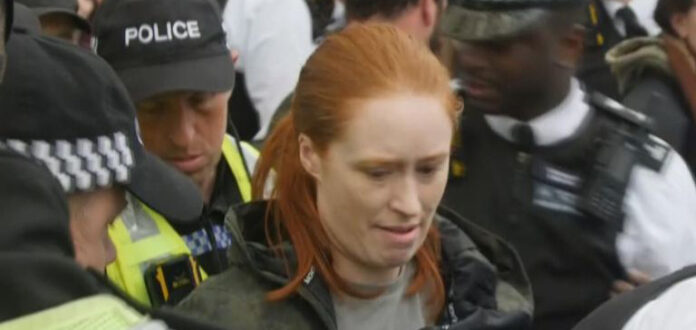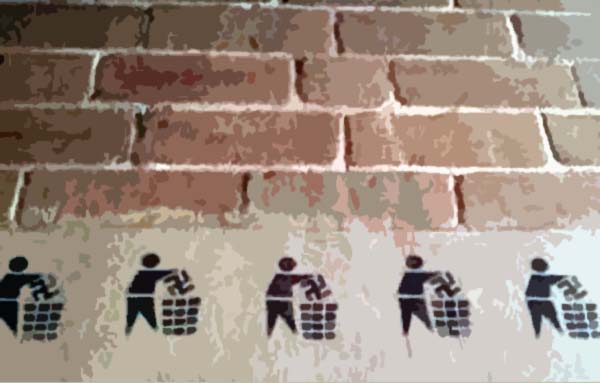Nigel Smith
Alice Chambers was arrested by the police along with over sixty others on the occasion of King Charles’ coronation; the irony being that Alice is an ardent royalist and was simply waiting for the parade to pass her by on the Mall in London. Alice was so much of a fan of the British Royal family that she had attended several other royal events, including a Buckingham Palace garden party. Her arrest illustrates well, the draconian nature of police powers in the UK and the indifference to personal freedom of expression here. Alice was seized and handcuffed by the police and spent 13 hours in custody. She wasn’t listened to, she was otherised by the state and her civil rights were seriously crushed. The poem below is a response to this event, in the form of a parody of the poem “An unexpected guest” by poet laureate Simon Armitage.
Alice Chambers
She always travelled on her own to such events –
her Ozzie mates found it funny that she
tripped to London to witness the pomp
and ceremony that’s pretty unique in the world.
She’d already been to a Palace garden party –
all flushed in pink – hat happily cocked
and thrilling at the prospect of the royal moment.
This time, after 70 years of Elizabethan rule
she’d hoped to catch a momentary
glimpse of purple and thrill at the spectacle:
he clatter of hooves – the sound of trumpets,
to overdose on marching and an excess of colour.
She sat on the little stool she’d bought
just for this occasion, flanked by people she didn’t know,
feeling united by patriotic purpose,
a love of bling and a sense of the right form of order.
And the police were there
to do their jobs, to make this day a special day
for all the world to see – a spectacle of military bands
colour continuity and the force of law and policing by consent.
And Alice Chambers, with auburn hair that could have been
that of a previous royal – quiet in her khaki kagool
and pony-tail, at home with a police-force who
she felt were there to serve her, waited.
She had no knowledge of others in the crowd,
whether they be nurses or charity workers
or sponsored walkers or those who believed the day
was a day for them to show just how united we still can be.
She thought it odd – the hush as the police gathered,
the iron-mask faces they wore
and then the handcuffs appearing
and being snapped onto her wrists.
I was trying to be calm,
just wanted someone to listen but it never came.
There was something about,
potential to cause a breach of the peace.
For thirteen hours Alice was questioned, swabbed for her DNA,
her fingerprints taken, body searched, held in a cell,
before, after all this impersonal probing, it was recognised that
Alice Chambers was never a threat to the peace and she began to cry.
The next day, she was there on the Six O’clock News.
Did the cameras notice the handcuffs, her calm manner
or the way the police looked right through a woman
who believed they were there for all our good?
The return ticket that would have taken her home is still unused.
She takes it from her purse and holds it against the letter
she received inviting her to The Palace
that she said she’d always keep.
Now she’ll keep the memory of:
the helicopters flying overhead,
the bitter taste of institutional tea,
the chilling echo of her cell.













